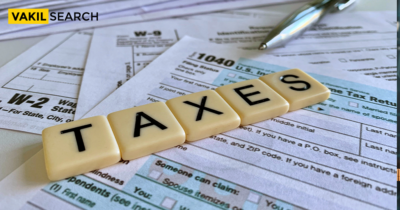This article provides a summary of the current tax rates in India for the year 2022-2023 to help provide an overview of the tax system.
- Income Tax
The income tax in India is levied at the central and state levels. The central income tax rate is currently 20%. The state income tax rates vary from state to state, but they are generally lower than the central rate. For example, the state of Tamil Nadu has a state income tax rate of 10%.
- Custom Duty
Custom duty is an import tax that is levied on various items that enter India from other countries. The custom duty rate currently stands at 10%.
- Service Tax
The service tax in India is levied on services that are provided to Indians or Indian residents. The service tax rate currently stands at 12%.
- Wealth Tax
The wealth tax in India is an indirect taxation mechanism that is used to collect revenue from high-net-worth individuals and families. The wealth tax rate currently stands at 40%.
Current Tax Rates in India
In India, the current tax rates for individuals and businesses range from 10% to 30%. These rates are reviewed and updated annually by the Indian government.
The main taxes that Indian citizens pay are the Central Sales Tax (CST) and the Value Added Tax (VAT). The CST is a tax levied on goods and services sold in the country. The VAT is a tax that is levied on all types of sales, including personal services.
Get Details of Professional Tax Rates in India
There are also other taxes that apply to specific industries or businesses. For example, companies that produce electricity are required to pay a separate tax called the Power Transaction Tax (PTT). This tax helps to fund projects that help to improve the energy infrastructure in India.
Tax rates in India are updated regularly so that businesses and individuals can keep up with the latest changes.
Tax Rates for Individuals in 2022
As the year 2022 comes to an end, it’s important to keep in mind the current tax rates that apply to individuals in India. Here is a quick summary of the current tax rates for individuals in India:
The personal income tax returns rate for individuals in India is currently 10%. This includes both individual and corporate income taxes.
The estate duty charge on property transferred during the lifetime or within three years of death is 0%.
The GST (Goods and Services Tax) rate for all goods and services is now 18%. This includes both central and state GST rates.
Tax Rates for Businesses in 2022
The current tax rates in India for the year 2022 are as follows:
Income Tax: The basic income tax rate for individuals is 10%. The higher-income earners will be taxed at a rate of 15%. There are also special taxes levied on capital gains, dividend income, and other miscellaneous incomes.
Corporate Tax: The corporate tax rate in India is 30%. This includes all forms of business, from small businesses to multinational corporations.
Value Added Tax (VAT): The VAT in India is 20%. This applies to everything from food and drinks to clothes and accessories.
What Factors Affect the State’s Tax Rates?
One of the main factors that affect the state’s tax rates is its GDP. GDP is a measure of a country’s economic performance and affects the state’s tax rates because it determines how much tax the state can collect.
Another factor that affects the state’s tax rates is its population. The number of people in a state affects how much tax the state can collect because it determines how much government revenue the state has.
Finally, the state’s tax rates also depend on its political stability. A stable government that is able to maintain its power over tie increases the chances that a state will be able to maintain high tax rates.
Types of Taxable Income in India
Income earned from receiving Salaries:
- This category includes all income received by an employee from their employer, such as basic salary, allowances, bonuses, and more.
- Pension received post-retirement is also considered part of this income head.
- Employees must provide details of their salary income through Form 16 when filing their income taxes.
Income earned from Capital Gains:
- Capital gains encompass income generated from the sale of various assets, including properties, debentures, stocks, equities, bonds, land, and jewellery.
- Taxes on capital gains are applicable when the taxpayer sells the asset.
Income earned from House Property:
- Income generated from renting out a property is taxable in the hands of the property owner.
- It’s important to note that income earned from a property used for business or professional purposes falls under a different category.
Income generated via Business/Profession:
- This income head, often referred to as “Profits and Gains from Profession or Business,” includes earnings from professional practices, businesses, and freelance work.
- Professionals like chartered accountants, lawyers, doctors with private practices, business owners, freelancers, life insurance agents, and tuition teachers fall under this category.
Income from Other Sources:
- All income sources not covered by the above four categories are categorized as income from other sources.
- This category includes income from activities such as horse racing, gambling, lottery winnings, dividends, pensions received after the death of the pensioner, gifts from friends and family, interest earned on various investments (debentures, bonds, securities, savings bank accounts, fixed deposits), rental income from properties other than house property, and income earned from participating in game shows or TV programs.
Key Differences Between New & Old Tax Regimes
| Income Slab (Per Annum) | Old Regime Tax Rate (%) | New Regime Tax Rate (%) |
| Up to 2.5 lakhs | No tax | No tax up to 3 lakhs |
| 2.5 to 5 lakhs | 5% | 5% (now applicable for 3 to 6 lakhs) |
| 5 to 10 lakhs | 20% | 10% (6-7 lakhs eligible for tax rebate) |
| Above 10 lakhs | 30% | 15% (9-12 lakhs), 20% (12-15 lakhs), 30% (above 15 lakhs) |
Who Pays Corporate Tax?
In India, corporate tax is paid by the company itself, as opposed to the individual shareholders. This means that companies that make a profit pay tax on their profits, regardless of who owns them.
The corporate tax rate in India is 30%. This is lower than the global average of 34%, but it is higher than the average rate of 25% in developed countries.
An important reason for this high rate is that India wants to encourage business investment and growth. The government also believes that it is necessary to generate revenue to cover the costs of welfare programs like health care and education.
Individuals who earn income from their shares in a company are taxed at their personal income tax rate, which varies depending on their income level. The lowest income group pays 10% tax, while those in the highest income group pay 20%.
Tax Exemptions on Agricultural Activities
One of the major tax exemptions in India is the exemption on agricultural activities. This exemption allows farmers to pay lower taxes on their income. The government has also introduced other incentives such as interest-free loans and free land to encourage farmers to invest in agriculture.
FAQs on Professional Tax Rates 2023
Does professional tax differ based on which state you are filing?
Yes, professional tax rates and regulations vary from one Indian state to another. Each state government has the authority to impose and determine the specific professional tax rates applicable within its jurisdiction. Therefore, the professional tax you pay can differ depending on the state in which you are employed or conducting business.
How is the professional tax levied?
Professional tax is typically levied by the respective state government. It is usually calculated based on an individual's or business entity's income, profession, trade, or employment status. The tax is collected either on a monthly or annual basis, depending on state-specific rules.
Does it fall under direct taxation?
Yes, the professional tax falls under the category of direct taxation. It is a tax imposed directly on individuals, businesses, or professionals based on their income or occupation.
Do non-salaried people have to pay professional tax?
Yes, professional tax is applicable not only to salaried individuals but also to self-employed professionals, business owners, and individuals engaged in various trades and professions. The tax is levied based on the nature of the occupation and the income generated.
Are there rebates available for professional tax?
Rebates or deductions on professional tax may be available in some states under specific conditions. These rebates are often provided to certain categories of individuals, such as senior citizens or persons with disabilities, as per state government regulations.
How is the professional tax calculated?
The calculation of professional tax depends on the state-specific tax slab rates and the individual's or business entity's taxable income. Generally, it is computed as a fixed amount or as a percentage of income within specified slabs.
How do I know if I have to pay professional tax?
The obligation to pay professional tax arises based on your occupation, income, and the state in which you are working or conducting business. Employers and self-employed individuals are typically responsible for deducting and remitting professional tax on behalf of their employees or themselves. You can inquire with your employer or refer to your state's taxation department for specific guidelines.
Does the value of the professional tax payable vary annually?
The value of professional tax payable can vary from year to year, depending on changes in tax rates, income slabs, or state government policies. It is advisable to stay updated with the latest tax regulations to determine the annual tax liability accurately.
Whom should I consult before paying PT?
You can consult your employer, a tax consultant, or the local taxation department of your state for guidance on professional tax payments, applicable rates, and related queries. They can provide you with accurate information based on your specific circumstances.
Can I pay the tax in a bank?
In many states, professional tax payments can be made through designated banks or online payment portals. The specific payment methods and accepted banks may vary depending on your state's tax department. Check with your state's tax authorities for details on the payment process and authorized banks for professional tax payments.
Conclusion
While there have been a few changes made recently in the tax percentile, the general trend is that taxes are going up as India’s economy continues to grow.
Also, Read:









